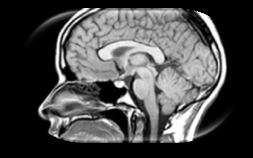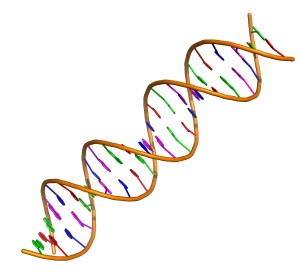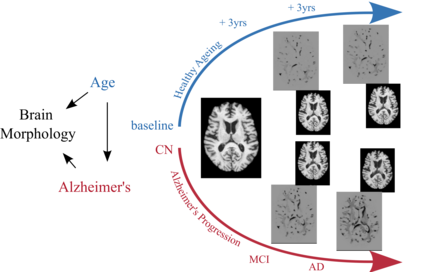Causal machine learning (CML) has experienced increasing popularity in healthcare. Beyond the inherent capabilities of adding domain knowledge into learning systems, CML provides a complete toolset for investigating how a system would react to an intervention (e.g.\ outcome given a treatment). Quantifying effects of interventions allows actionable decisions to be made whilst maintaining robustness in the presence of confounders. Here, we explore how causal inference can be incorporated into different aspects of clinical decision support (CDS) systems by using recent advances in machine learning. Throughout this paper, we use Alzheimer's disease (AD) to create examples for illustrating how CML can be advantageous in clinical scenarios. Furthermore, we discuss important challenges present in healthcare applications such as processing high-dimensional and unstructured data, generalisation to out-of-distribution samples, and temporal relationships, that despite the great effort from the research community remain to be solved. Finally, we review lines of research within causal representation learning, causal discovery and causal reasoning which offer the potential towards addressing the aforementioned challenges.
翻译:在医疗保健方面,因果机学(CML)越来越受欢迎。除了将域知识纳入学习系统的固有能力外,CML还提供了一个完整的工具,用于调查一个系统如何对干预作出反应(例如,/ 治疗结果)。干预措施的量化效果允许在保持稳健的同时,在混乱者在场的情况下作出可采取行动的决定。在这里,我们探索如何利用机器学习的最新进展将因果推论纳入临床决策支持系统的不同方面。我们在整个文件中,利用阿尔茨海默氏病(AD)来创造范例,说明CML如何在临床情况下具有优势。此外,我们讨论了保健应用中存在的重要挑战,例如:处理高维和无结构的数据、对分配外抽样的概括化以及时间关系,尽管研究界作出了巨大努力,但仍有待解决。最后,我们审查了在因果代表学习、因果发现和因果推理方面的研究系列,这些研究为应对上述挑战提供了可能性。


















